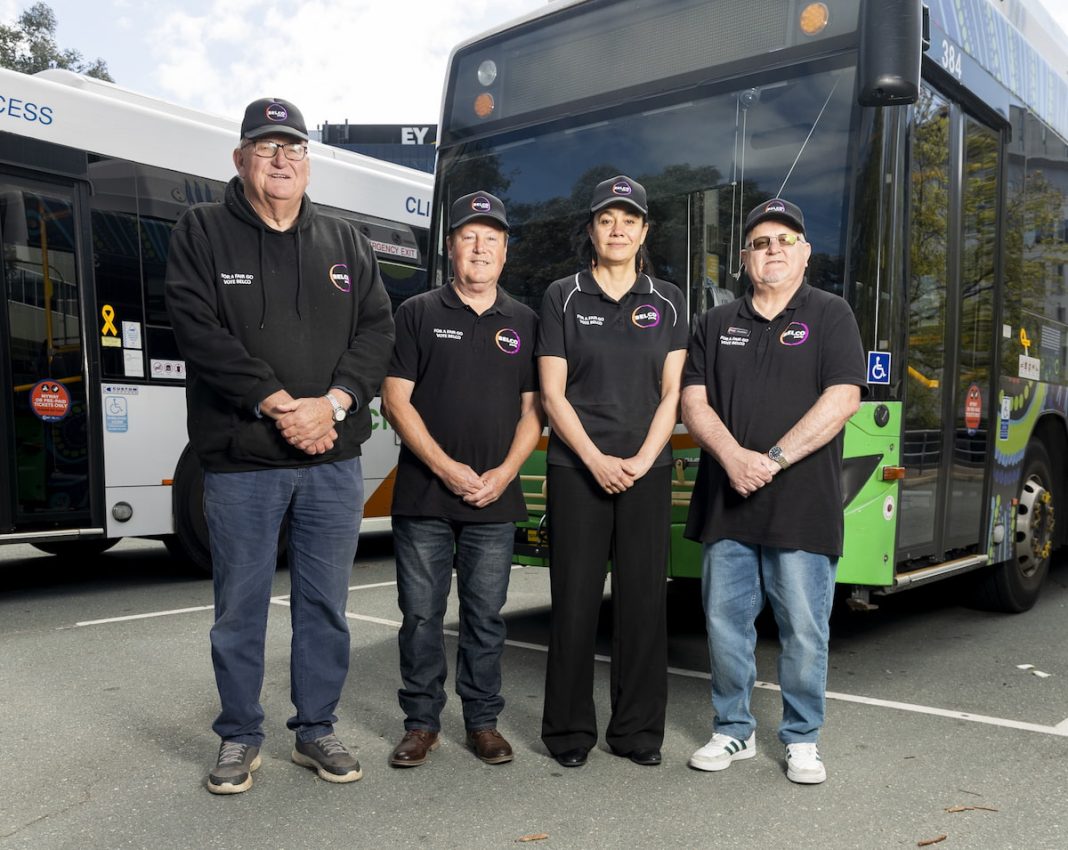For the next month, public transport is free while the ACT Government transitions its ticketing system to MyWay+. Inspired by the surge in patronage during the switchover, the Belco Party has pledged to make public transport free for everyone all year round.
The ACT Greens and the Canberra Liberals have already promised free travel for people under 18, seniors, and people on low incomes. But the Belco Party believes those approaches fall short.
“Other parties seem to be offering all these great incentives without biting the bullet,” Bill Stefaniak, the party’s co-convenor, said. “They’ve singled out everyone but the working public to be free. They’re dancing around without biting the bullet. The Belco Party is more than happy to bite the bullet.”
Free public transport for everyone is a simpler solution, according to the Belco Party. In 2001, more than two decades ago, the then-Liberal government estimated that free school bus travel would cost $30 million. Today, fare revenue is comparatively lower: $25 million, Mr Stefaniak says transport minister Chris Steel recently told him.
“They’re not getting much [revenue], and they are clearly not going to get much with the various exemptions already offered,” Mr Stefaniak said. “So why not make buses free?”
It has been successfully done in Luxembourg, he notes, as well as Malta and Estonia. The long-term benefits of increased local business activity, reduced emissions, and improved safety, Mr Stefaniak argues, would outweigh the $25 million lost revenue each year.
Free transport would be an incentive for workers to return to the office, as they would not have to find carparks, but would instead save money on parking expenses. Businesses in Civic and the town centres would benefit from their trade, and the government from businesses’ taxes. It would even help with tourism, Mr Stefaniak thinks.
“This really would encourage people to park and ride or leave their cars at home, and that reduces traffic congestion in Civic,” Mr Stefaniak said. “It helps with parking; it gets people back there utilising the shops and restaurants… When you do a net cost-benefit analysis, you probably end up miles in front.”
Currently, only 6 to 7 per cent of Canberra residents use public transport, but if that figure rose to 10 per cent, it would reduce greenhouse gas emissions from transport, which account for 60 per cent of the ACT’s total emissions.
“If you want to do something for the environment, take a train, a tram, or a bus, because critical mass means more people in here,” Mr Stefaniak said. “Rather than having 30 to 40 cars on the road, you might have 30 or 40 people in a bus or a tram that you wouldn’t have otherwise. By taking all those cars off the road, it clearly helps the environment, and it’s les wear and tear on the roads. You’d probably have fewer accidents – that’s part of the human environment.”
Belco Party candidate Alan Tutt, whose son is a bus driver, said that free public transport would be safer, particularly for young women travelling at night.
“They should be able to go home safe without paying to get on the bus.”
Busier public transport services in peak hours during the trial period have led to fewer cars on the road and a smaller carbon footprint, Mr Tutt said. For his part, Mr Stefaniak, who catches the bus several times a week, says that he is seeing buses nearly full for the first time; travelling from Griffith to Civic at lunchtime, he found it hard to get a seat. He expects that spike in patronage would continue – and if not, “it proves that Canberrans love their cars, and there’s no way they’re going to utilise public transport, even when you make it free”.
The Belco Party believes the costs of providing free public transport could be offset by eliminating the costly ticketing system – “With so many groups now exempt, it makes sense to go the whole hog; by simplifying it, costs would probably be minimal” – and scrapping stage 2B of the light rail project.
The Belco Party urge other parties to adopt their vision for free public transport.
“It’s the sort of policy I’d hope anyone would warm to, and it’s a shame it probably didn’t happen in 2001,” Mr Stefaniak said. “We could have had it now for a generation, but that’s not to stop us doing it now.”



